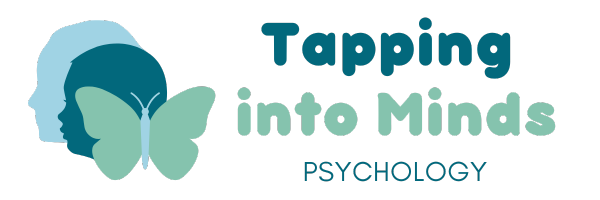“The worst loss is always your loss.” – Dr. David Kessler
Grief is messy. It’s the death of something—a relationship, a future, a dream—and no two experiences are the same. I’ve faced my own losses, from my mother’s cancer diagnosis to recurrent pregnancy loss and the deaths of family members. As a psychologist, I know how unpredictable and overwhelming grief can be, and yet, how deeply personal the journey is.
Confronting Grief in a Death-Denying Culture
We live in a culture that avoids talking about death, even though it’s a natural part of life. By not confronting it, we isolate ourselves in our grief. But by facing it head-on, we allow space for meaning-making, as Dr. David Kessler highlights in his sixth stage of grief—finding purpose in loss.
Making Meaning from Loss
Grief isn’t a straight path. Neimeyer’s 3 R’s—Retelling, Rebuilding, and Reinventing—help us navigate its complexity. We remember our loved ones, reconstruct our world without them, and redefine our lives while carrying their memory forward.
The Dual Process Model shows that grief ebbs and flows. Some days, we lean into the pain; other days, we focus on life’s practicalities. The Continuing Bonds theory reminds us that we don’t have to “let go.” Memories, rituals, and shared stories keep loved ones present as we move forward.
Lessons from the Dying
When I met Bronnie Ware, author of The Top Five Regrets of the Dying, she shared her insights: live authentically, nurture relationships, and prioritize what truly matters. A 2018 study confirmed these themes, showing that meaningful connections and alignment with our values not only shape our lives but also help us find peace in grief.
Clinical EFT: A Tool for Grief’s Intensity
Grief can hit unexpectedly, bringing emotions that may at times overwhelm and distress us. One tool I personally use is Clinical Emotional Freedom Techniques (EFT). Tapping on acupressure points while focusing on distressing emotions helps regulate the nervous system. While it doesn’t take away the grief, EFT can provide relief when emotions feel unbearable.
As Professor Peta Stapleton (Winner of the 2024 Distinguished Contribution to Psychological Science Award from the Australian Psychological Society) explains, EFT requires relatively few sessions, works effectively online or in person, and offers lasting symptom improvement. It’s not a cure for grief, but it’s a strategy to help manage its intensity.
Self-Care in Grief
Grief can be draining, so small acts of self-care can help us endure:
Emotional: Talk to someone you trust.
Physical: Eat well and get rest.
Psychological: Set boundaries to protect your energy.
Spiritual: Connect with something that brings you peace—whether in nature, meditation, or faith.
Supporting Others
To help someone grieving, simply be there. Listen without judgment, share memories, and acknowledge their pain. Grief has no timeline, so check in regularly, long after the loss.
Grief is messy, unpredictable, and deeply human. But by facing it, finding support, and embracing tools like EFT, we can learn to live alongside it—and even discover meaning in the midst of pain.
By Laura Love, Co-Founder and Principal Psychologist of Tapping Into Minds



